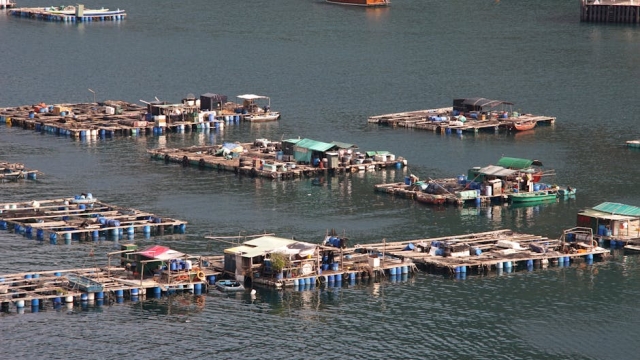Emerging Technologies in Fish Farming

Innovation plays a pivotal role in the evolution of fish farming, driving improvements in productivity, sustainability, and profitability. As the global demand for seafood continues to rise, aquaculture practices must adapt to meet this challenge. fish farming innovation strategies encompass a wide range of emerging technologies, sustainable practices, and management efficiencies that can transform the industry. This article explores these key areas, providing insights into how they can be applied effectively in fish farming operations.
Emerging Technologies in Fish Farming
One of the most significant advancements in aquaculture is the integration of emerging technologies that enhance operational capabilities. Automated feeding systems, for instance, have revolutionized how fish are fed. These systems ensure that fish receive the appropriate amount of feed at the right times, reducing waste and improving growth rates. By using sensors and algorithms, these systems can adjust feeding schedules based on fish behavior and environmental conditions, optimizing feed efficiency.
Another vital technology is water quality monitoring tools. Maintaining optimal water conditions is crucial for fish health and growth. Advanced monitoring systems can continuously track parameters such as temperature, pH, dissolved oxygen, and ammonia levels, providing real-time data that allows farmers to make informed decisions. This proactive approach not only enhances fish welfare but also minimizes the risk of disease outbreaks, ultimately leading to a more productive aquaculture operation.
Sustainable Practices for Aquaculture
Sustainability is at the forefront of modern fish farming innovation strategies. Integrated multi-trophic aquaculture (IMTA) is a prime example of this approach. IMTA involves cultivating different species together in a way that allows them to complement each other’s growth. For instance, while finfish may consume feed that can lead to nutrient waste, shellfish and seaweeds can absorb these excess nutrients, promoting a more balanced ecosystem. This practice not only enhances productivity but also reduces environmental impacts, making it a sustainable choice for aquaculture.
Another sustainable practice gaining traction is the use of recirculating aquaculture systems (RAS). These systems recycle water and minimize waste, allowing for fish farming in areas with limited water resources. By creating a closed-loop system. RAS can significantly reduce the environmental footprint of aquaculture operations, making them a viable option for sustainable fish farming.
Efficiency Improvements Through Innovative Management
Operational efficiency is crucial for the success of fish farming enterprises. Innovative management strategies can lead to significant improvements in productivity and cost-effectiveness. For example, employing data analytics and management software can help farmers better understand their operations. By analyzing growth rates, feed conversion ratios, and mortality rates, farmers can identify areas for improvement and adjust their practices accordingly.
Case studies demonstrate the success of these innovative strategies. For instance, a fish farm utilizing automated systems and data analytics reported a substantial increase in production efficiency and a decrease in feed costs. By streamlining operations and adopting a data-driven approach, the farm not only enhanced its profitability but also reduced its environmental impact.
| Innovation Type | Description | Benefits |
|---|---|---|
| Automated Feeding Systems | Systems that deliver precise feed amounts | Reduced waste, improved growth rates |
| Water Quality Monitoring | Continuous tracking of aquatic conditions | Better fish health, reduced disease risk |
| Integrated Multi-Trophic Aquaculture | Cultivating different species together | Enhanced ecosystem balance, sustainability |
| Recirculating Aquaculture Systems | Closed-loop water recycling systems | Reduced environmental impact, resource efficiency |
In conclusion, fish farming innovation strategies are essential for evolving aquaculture practices to meet the growing demand for sustainable seafood. By embracing emerging technologies, implementing sustainable practices, and improving operational efficiency, fish farmers can enhance their productivity and contribute to a more sustainable future. For those looking to explore these strategies further, resources and insights can be found at Wolize, which offers valuable information on innovative practices in fish farming.


